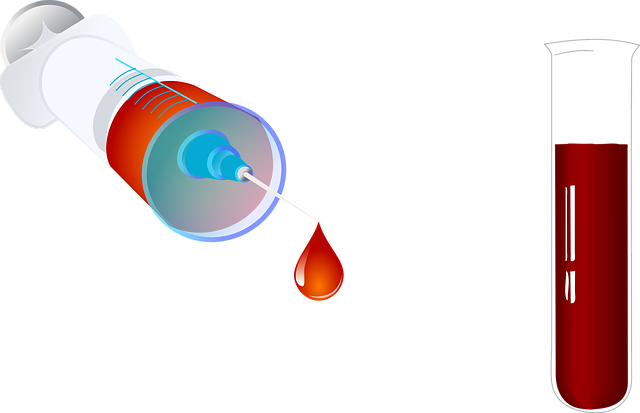Iron deficiency anemia, caused by low iron intake or absorption, leads to fatigue, weakness, and pale skin. In the UK, early diagnosis is emphasized through regular testosterone blood tests for men, which can reveal critical hemoglobin and red blood cell levels. The Testosterone Blood Test UK measures hormone levels and helps differentiate anemia types, enabling healthcare providers to develop tailored treatment plans including dietary changes, supplements, or medical interventions to improve overall well-being. Interpreting test results within established normal ranges (270-1070 nmol/L) is crucial for understanding hormone adequacy and requires medical advice for accurate diagnosis and treatment.
“Iron deficiency anemia, a common yet often overlooked health concern, can significantly impact overall well-being. This condition arises from inadequate iron levels in the body, leading to fatigue, weakness, and other symptoms. This article delves into understanding this type of anemia and highlights the crucial role of blood tests in its diagnosis. Specifically, we explore how a Testosterone Blood Test UK can provide insights, helping healthcare professionals interpret results accurately to facilitate effective treatment.”
- Understanding Iron Deficiency Anemia and Its Impact
- The Role of Blood Tests in Diagnosis
- Interpreting Test Results: What to Expect from a Testosterone Blood Test UK
Understanding Iron Deficiency Anemia and Its Impact
Iron deficiency anemia is a common blood disorder where the body lacks enough healthy red blood cells, often caused by insufficient iron intake or absorption. This condition can significantly impact overall health and well-being. Iron plays a vital role in carrying oxygen from the lungs to all parts of the body, so its deficiency can lead to fatigue, weakness, pale skin, shortness of breath, dizziness, and headaches. Left untreated, anemia may cause more severe complications, affecting various organs and physiological processes.
In the UK, awareness about iron-related health issues is growing, including the importance of regular testosterone blood tests for men. While not all cases of anemia are immediately apparent, a simple blood test can reveal critical levels of hemoglobin and red blood cells, helping to diagnose iron deficiency anemia early on. Prompt diagnosis enables effective treatment through dietary changes, iron supplements, or in some cases, medical interventions to address the underlying cause.
The Role of Blood Tests in Diagnosis
Blood tests play a pivotal role in diagnosing iron deficiency anemia, a common nutritional disorder characterized by low red blood cell count and reduced hemoglobin levels. These tests are essential tools for healthcare professionals to identify the underlying cause of anemia and guide appropriate treatment. One key indicator, the testosterone blood test UK, while primarily associated with male health, can offer insights into overall health status and help differentiate between types of anemia.
By measuring various parameters in a sample of blood, such as hemoglobin levels, red blood cell count, and iron stores, healthcare providers can pinpoint iron deficiency as the root cause. The testosterone blood test UK might be included to assess hormonal balance and rule out other conditions that could present similar symptoms. This comprehensive approach ensures accurate diagnosis, enabling tailored treatment plans to restore iron levels and alleviate anemia’s impact on overall health.
Interpreting Test Results: What to Expect from a Testosterone Blood Test UK
When it comes to interpreting the results of a testosterone blood test in the UK, understanding what the numbers mean is crucial. The test measures the level of total testosterone in your blood, typically expressed in nanomoles per litre (nmol/L). Normal levels vary slightly between laboratories and by age. Generally, for adult men, a total testosterone level between 270-1070 nmol/L is considered within the healthy range. However, any reading below 300 nmol/L may indicate potential issues, with lower levels suggesting possible iron deficiency anaemia.
In the UK, healthcare professionals will compare your results against these established ranges to assess whether your testosterone levels are adequate. If your test results fall outside the normal range, further investigation may be required. Your doctor could recommend additional tests or suggest lifestyle changes to enhance hormone production and overall health. Remember, a Testosterone Blood Test UK is just one step in diagnosing anaemia or hormonal imbalances; interpretation should always be done in conjunction with medical advice.
Iron deficiency anemia, a common yet serious condition, can be effectively diagnosed and managed through blood tests, including the testosterone blood test UK. By understanding the impact of iron deficiency and interpreting test results accurately, individuals can take proactive steps towards optimal health. This knowledge empowers folks to navigate their healthcare journey, ensuring timely treatment and improved well-being.
